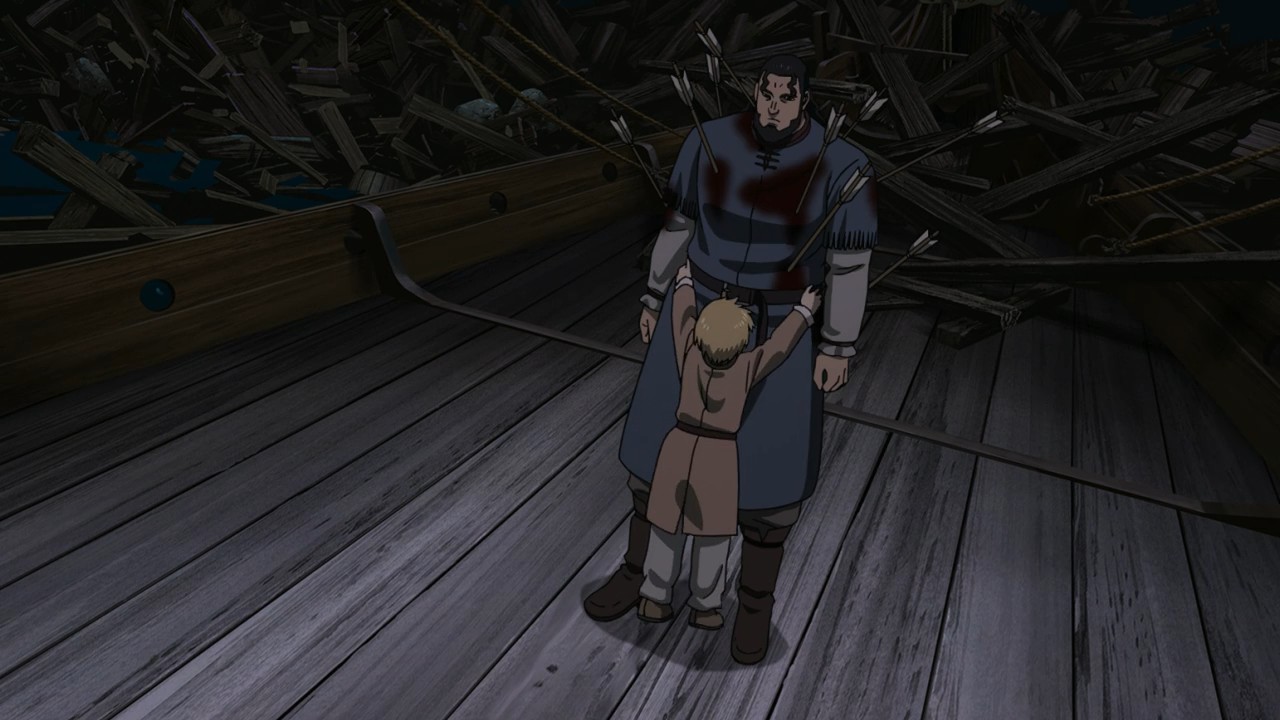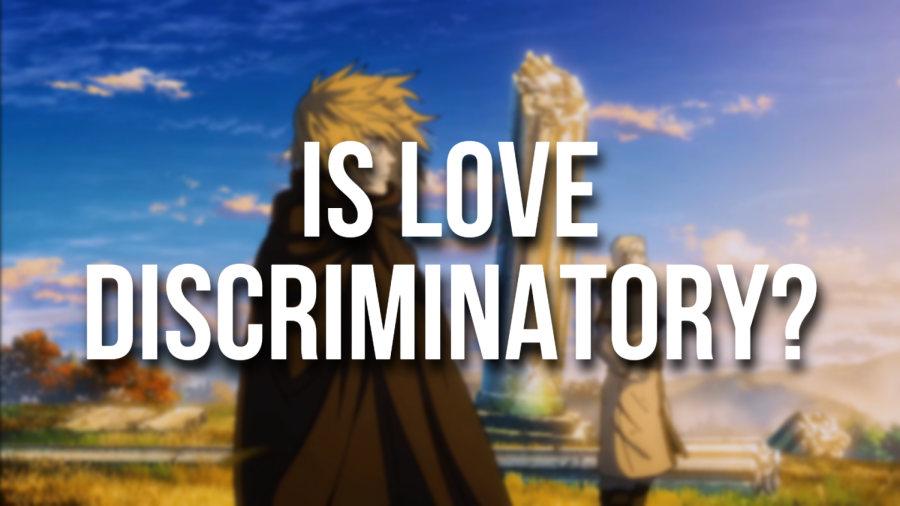Is the concept of love discriminatory?: Vinland Saga season 1 review
Episode 10, edited by Kiefer Ely
Can something that feels so good, actually be the downfall of our morality?
September 30, 2022
Is the concept of love in itself discriminatory? That is the question that Vinland Saga seeks to answer throughout its 24-episode first season.
Vinland Saga was first released on April 13, 2005 as a Japanese manga written and illustrated by Makoto Yukimura and later confirmed for an animated adaptation which premiered on July 7, 2019.
The series follows young Thorfinn Thordarson, son of renowned viking Thors Snorresson, in his quest to avenge his father’s death at the hands of a pirate named Askeladd.
After his father’s death at just 6 years old, Thorfinn journeys alongside Askeladd’s crew from Iceland through much of the 10th-century conflicts of Britain and Wales, all in the hopes that he may become skilled enough to defeat Askeladd in an honorable duel as his father would have wanted.
Though it serves as a background to the series’ main plot, the historical context between the events occurring in the show adds a welcome level of reality to an otherwise mostly fictional show.
On this journey, Thorfinn meets Danish Prince Canute, who is fleeing from his father, the King of Denmark, who seeks to have him killed. Through his time in the show, Canute slowly finds confidence and purpose for his royal status.
This leads to an intense philosophical realization while observing the bloody remains of a dangerous battle.
“…death is the true meaning of love? A parent’s love for their child? [The love] of husband and wife for one another? [Is] prejudice?” said Canute in episode 18, “Out of the Cradle.”
Canute comes to the conclusion that love in itself is as discriminatory as hatred. Those who love are displaying favoritism towards one over another, while those who hate do the opposite. Only those who are dead may be free of love and hate, any and all discrimination, and as such are the personification of what love truly is.
“He is dead and therefore more beautiful than anyone alive. You might say he is love himself. For you see, he will not hate nor kill nor steal. Isn’t that beautiful?” Canute said in episode 18 titled “Out of the Cradle.”
While the development of a side character is interesting and welcome, it would be a mistake to overlook how tightly this philosophy is woven into Thorfinn’s story.
Vinland Saga is far from the first story to use the “You Killed My Father” trope; some of the most popular fictional characters of the past like Luke Skywalker and Batman have solidified it as a recognizable storyline for the average person. However, Vinland Saga seeks to uniquely rebrand this idea as one that is unadmirable. It is not the story of Thorfinn, the heroic avenger who seeks to cleanse the world of an evil murderer. It is the story of a child, immature and broken by the loss of such a loved one, who wastes his life via hatred and violence in the name of a past tragic but unchangeable event.
This turns what could be a boring and unmemorable story into an impactful and despairingly realistic tale with few comparisons.
In the story’s first episodes, even before Thors’ death, Yukimura begins to build this concept through discussion of the idea of a true warrior. Thors is said to be the one and only example of a true warrior. The skewed perspective of what that means is the key factor in Thorfinn’s fall from childhood grace. Many characters, Thorfinn included, believe that Thors earned the title of a true warrior due to his honor and skill, directly influencing Thorfinn’s obsessive lust to face Askeladd in battle.
It is only in episode 4, aptly titled “A True Warrior,” that the true meaning behind Thors’ title becomes clear to the audience. As Thors stands alone against Askeladd’s invading crew, he drops his sword. He accepts death as a consequence, choosing not to spill blood and only using violence when it is necessary to save others.

Thors is a true warrior, not because of his skill in battle but because he never finds satisfaction in the pain of another, not even those who threaten him with death. He holds no hatred and has love for all. As per Canute’s philosophy, he is a true warrior because his love is indiscriminate.
“You don’t have any enemies, no one has any enemies, there’s no one who it’s okay to hurt,” said Thors in episode 2, “Sword.”
Throughout Thorfinn’s 12 years with Askeladd’s crew, his anger only grows more untameable, a trait which is consistently manipulated by Askeladd to keep Thorfinn under his control.
“You can make use of anyone with the right approach,” said Askeladd in episode 8, “Beyond the Edge of the Sea.”
Thorfinn shuns those who try to connect with him and even spurns the opportunity to return to his sick mother, all to continue his conquest. By the season’s final episode, Thorfinn has descended into his own hatred so deeply that he has nothing else; he is nothing else.
This leads him to suffer at the sound of Askeladd’s final words, dying at the hands of Prince Canute.
“Be a true warrior… son of Thors,” Askeladd whispers to Thorfinn in episode 24, “End of the Prologue.”
Having had the satisfaction of fulfilling his only purpose, killing Askeladd, ripped away from him, Thorfinn is mocked by Askeladd for his failure to follow in his father’s footsteps. Even in Askeladd’s death, Thorfinn cannot escape the path he has chosen.
A wonderful quality of this show is that it is not afraid to break its characters. They do not always find solutions to their problems or flaws after just a few episodes. Nor do they have fast moving arcs like many other shows. Sometimes, they fall deeper and deeper into an issue until reality gives them a painful wakeup call, just like real life.
The final shot of the show focuses on Thorfinn’s blade, which he has carried with him since he was a child, as it falls from his grasp. As the title of the episode suggests, this symbolizes that the prologue has ended and our protagonist may now be free of the hatred which he has built his life upon. He can now take his first steps down the path of a true warrior: the path of indiscriminate love.
Above all, Vinland Saga succeeds by making the watcher think and recontextualize their modernized view of life through the lens of an exaggerated version of real history. Vinland Saga has the potential to change the way a person looks at life. It can change the way they look at their friends, loved ones, and most importantly, their enemies. This is the biggest factor in making a show special, and I look forward to watching it continue when season 2 releases in January 2023.






